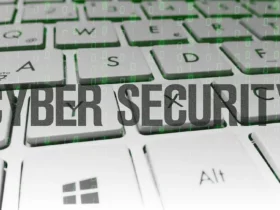In today’s digital age, software is a crucial part of running a successful business. From managing finances and communication to organizing tasks and operations, various types of software can enhance efficiency and productivity in any industry. However, with the endless options available in the market, it can be overwhelming for businesses to determine which software they truly need. In this guide, we will discuss the different types of software that every business should have to streamline processes and achieve their goals.
Financial Management Software
Financial management software is essential for keeping track of a business’s finances. This type of software can help with tasks such as invoicing, accounting, budgeting, and reporting. By automating these processes, businesses can save time and reduce human errors. For instance, opt for online invoicing at www.hiveage.com or any other similar platform to easily create and send professional invoices to clients. This not only streamlines the invoicing process but also ensures timely payments and accurate record-keeping.
Project Management Software
Project management software is a must-have for businesses that need to stay on top of their tasks and meet deadlines effectively. This type of software enables teams to plan, schedule, and assign tasks, set deadlines, track progress, and collaborate on projects in one centralized platform. With project management software, businesses can avoid confusion and delays caused by miscommunication or disorganized task delegation. It also allows managers to have a clear overview of the team’s workload and make necessary adjustments to ensure timely project completion.
Customer Relationship Management (CRM) Systems
Customer Relationship Management (CRM) systems help companies manage and analyze customer interactions and data throughout the customer lifecycle. By tracking customer behavior, preferences, and feedback, businesses can tailor their marketing strategies and communication to better meet customers’ needs. Moreover, CRM systems provide valuable insights into sales trends and customer buying patterns, enabling businesses to improve their sales strategies and boost revenue. With CRM software, companies can centralize customer information, streamline communication, and track sales progress all in one place. This leads to improved customer engagement and satisfaction, increasing the likelihood of repeat business and positive word-of-mouth referrals.

Human Resources (HR) Software
Human Resources (HR) software automates HR tasks such as employee onboarding, time tracking, performance evaluations, and benefits management. By having all employee information stored in one secure database, companies can easily access and update records without the need for manual paperwork. HR software also streamlines payroll processes by accurately calculating wages, taxes, and other deductions. This not only saves time but also reduces the risk of errors that could result in costly legal or financial consequences. can greatly benefit a business’s operations and overall success.
Data Analytics Software
Data Analytics Software is a powerful tool that businesses can use to gather and analyze large sets of data. By using this software, companies can identify patterns, trends, and correlations within their data. These insights can then be used to make informed decisions about various aspects of the business such as marketing strategies, product development, or resource allocation. With this type of software, businesses can gain a deeper understanding of their target market, identify potential areas for improvement, and make data-driven decisions that can lead to increased efficiency and profitability.
Backup and Disaster Recovery Software
Data loss can occur due to various reasons such as hardware failures, human error, natural disasters, or cyber-attacks. To mitigate the risk of losing crucial business information and operations, businesses must have backup and disaster recovery software in place. This type of software automatically backs up data and stores it in a secure location, ensuring that businesses can recover their data in case of any unforeseen events. Moreover, disaster recovery software helps businesses resume operations quickly by restoring systems and applications to their pre-disaster state.
Cybersecurity Software
In today’s digital world, cybersecurity threats are becoming increasingly prevalent, making it essential for businesses to protect their data and systems. Cybersecurity software helps prevent unauthorized access to valuable company and customer information by implementing various security measures like firewalls, antivirus programs, intrusion detection/prevention systems, and encryption tools. This type of software can also detect and mitigate potential cyber attacks before they cause any significant damage. With cybersecurity software, businesses can safeguard their sensitive data and protect their reputation by ensuring the security and privacy of their customers’ information. Therefore, every business must invest in reliable cybersecurity software to mitigate potential risks and maintain a secure online presence.
Having the right software can greatly benefit a business’s operations and overall success. With the vast array of options available in the market today, businesses must carefully evaluate their needs and prioritize which software is essential for their operations. By investing in the right software, businesses can save time, reduce human errors, improve communication and collaboration, gain valuable insights, protect their data, and ultimately boost productivity and profitability.








